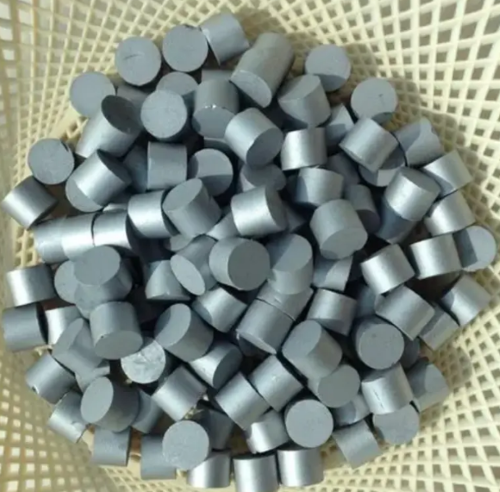
Rhenium, one of the rarest and most valuable metals on Earth, plays a vital role in the production of superalloys, which are high-performance materials used in some of the most demanding industries, including aerospace, power generation, and defense. Due to its exceptional properties, such as its high melting point, excellent strength at elevated temperatures, and resistance to corrosion and oxidation, rhenium is essential for creating alloys that can withstand extreme conditions.
The superalloy industry uses a variety of rhenium products, each with specific benefits and applications. Among the most commonly used forms of rhenium in superalloy manufacturing are rhenium pellets, rhenium powder, rhenium wire, and rhenium-coated materials.

1. Rhenium Pellets
Rhenium pellets are one of the most widely used rhenium products in the superalloy industry. These compact, dense forms of rhenium are used primarily in the alloying process to produce high-performance superalloys. When added to nickel-based superalloys, rhenium enhances their ability to withstand high temperatures, extreme mechanical stress, and oxidation. Key applications of rhenium pellets include:
- Aerospace: Turbine blades and other critical components of jet engines and rocket motors.
- Gas Turbines: Parts that operate at extremely high temperatures, such as combustion chambers and nozzles.
- Missile Systems: Engine components that require exceptional heat and wear resistance.
Rhenium pellets improve the creep resistance and thermal stability of these alloys, allowing them to maintain their mechanical properties at temperatures that would degrade most other metals.
Further reading:
2. High-Purity Rhenium Powder
High-purity rhenium powder is essential in powder metallurgy, where precise control over the composition and microstructure of the alloy is necessary. This form of rhenium is often used to create fine alloys that offer improved weldability, creep resistance, and oxidation resistance. High-purity rhenium powder is particularly useful in the following applications:
- Precision Alloying: Manufacturing superalloys with uniform properties, crucial for aerospace and power generation components.
- Advanced Turbine Blades: Used in jet engines and gas turbines, where high-purity rhenium ensures optimal performance.
- Superalloy Powder Metallurgy: For creating complex parts that require high reliability and performance in extreme conditions.
This powder form allows manufacturers to achieve consistent alloying and incorporate rhenium evenly throughout the material, ensuring its beneficial properties are distributed effectively.
3. Rhenium Wire
Rhenium wire is used in high-temperature applications where resistance to oxidation, mechanical stress, and electrical conductivity are essential. It is often employed in:
- Thermocouples: Rhenium wire is frequently used in temperature sensors for monitoring high temperatures in aerospace, chemical, and energy industries.
- Electrical Components: In components that must function in extreme conditions, such as high-temperature contacts or electrical heating elements.
- Precision Welding: Rhenium wire can be used for welding turbine components or other delicate parts in nuclear reactors or aerospace engines that need a high degree of accuracy and durability.
Rhenium wire ensures reliable performance at elevated temperatures, maintaining strength and integrity over extended periods.
4. Rhenium-Coated Materials
In certain high-performance applications, rhenium is applied as a coating on other materials to impart its exceptional properties, such as resistance to oxidation and wear. These rhenium-coated components are particularly important in industries where both material strength and surface performance are critical.
- Turbine Components: Turbine blades, buckets, and vanes are often coated with rhenium to enhance their resistance to high-temperature oxidation and increase their service life.
- Jet Engine Parts: Rhenium coatings are used on nozzles and combustion chambers to protect these components from extreme thermal environments and reduce wear.
- Rocket Propulsion Systems: Components exposed to extreme heat during launch benefit from rhenium coatings, which improve their durability and efficiency.
Rhenium coatings provide an extra layer of protection for parts that are subjected to erosion, thermal cycling, and oxidation.
5. Rhenium Alloys
Rhenium is commonly alloyed with other metals such as nickel, cobalt, iron, and titanium to produce specialized superalloys. These rhenium alloys exhibit exceptional strength, thermal stability, and resistance to corrosion, making them ideal for applications in:
- Aerospace: Components in jet engines, rocket motors, and turbine blades.
- Power Generation: Parts in gas turbines and nuclear reactors that operate in extreme temperatures.
- Defense: Superalloys containing rhenium are crucial for producing parts for missiles, warheads, and advanced military propulsion systems.
These alloys are engineered to meet the strict performance requirements of high-stress, high-temperature environments, ensuring that critical components retain their functionality under the most demanding conditions.
Conclusion
Rhenium products such as pellets, high-purity powder, wire, coatings, and alloys are indispensable in the superalloy industry. Their ability to enhance the strength, creep resistance, oxidation resistance, and thermal stability of superalloys makes them essential for aerospace, energy, defense, and industrial applications.
As industries continue to demand materials that can withstand higher temperatures and harsher environments, rhenium’s role in the superalloy industry will continue to grow, ensuring the reliability and performance of critical components used in advanced technologies. For more rhenium products, please check Advanced Refractory Metals (ARM).

